Contact our advisors now to learn more about our programs and courses. They are here to answer all your questions and help you embark on a successful journey.
"*" indicates required fields
Job search is a two-stage process.
If learning data science is already a daunting task, working on your interview skills is not less easy for sure.
It takes good preparation and job search can be a lonely journey. There are times that you don’t hear back from hiring companies at all, and times that you get rejected by hiring managers. So you need to be prepared mentally. The real journey starts when you graduate from school, a bootcamp, or get your data science certification.
The good news is that some of those failed experience will make you tougher and prepare you for the real world.
In general, you need a few things in place before you start your job search:
There’s a plethora of resume how-to information one can find online. Here’re a few things you should note:
Keywords matter because they make your resume noticeable. Most resumes are screened by Applicant Tracking Systems (ATS) nowadays and you need to make sure that you hit the right keywords. WeCloudData’s general suggestions are:
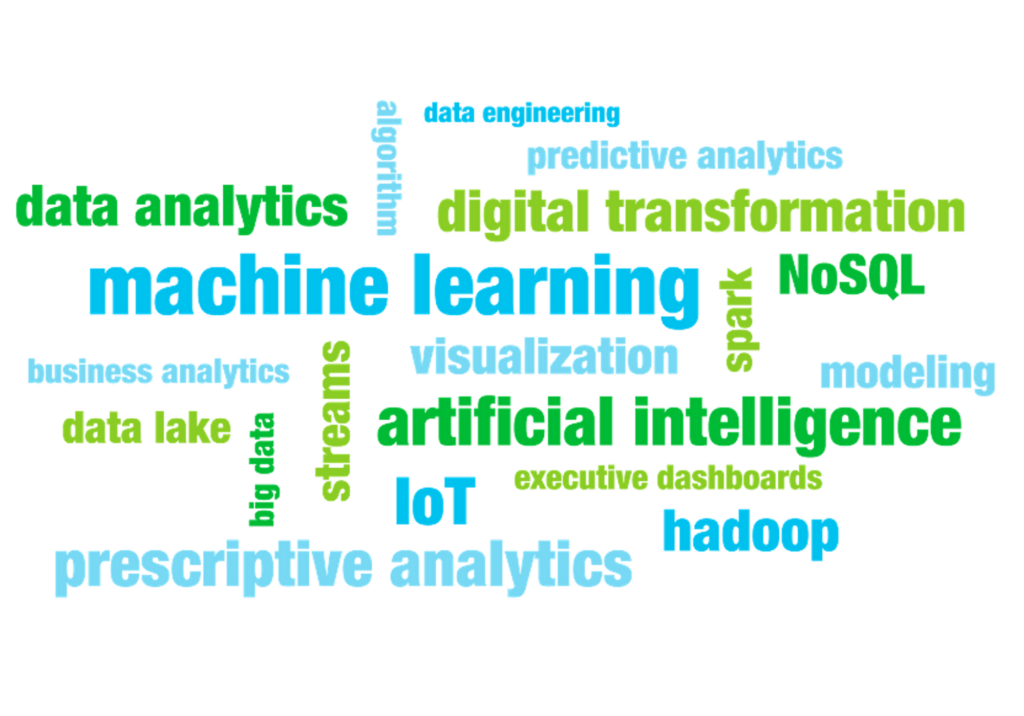
Before you start your data science learning journey, you need to do your research and follow a structured curriculum that helps you learn focus on learning the skills that are most relevant to the job market. If you’re not sure what skills you should learn, refer to the previous chapter on Data Science Learning Path
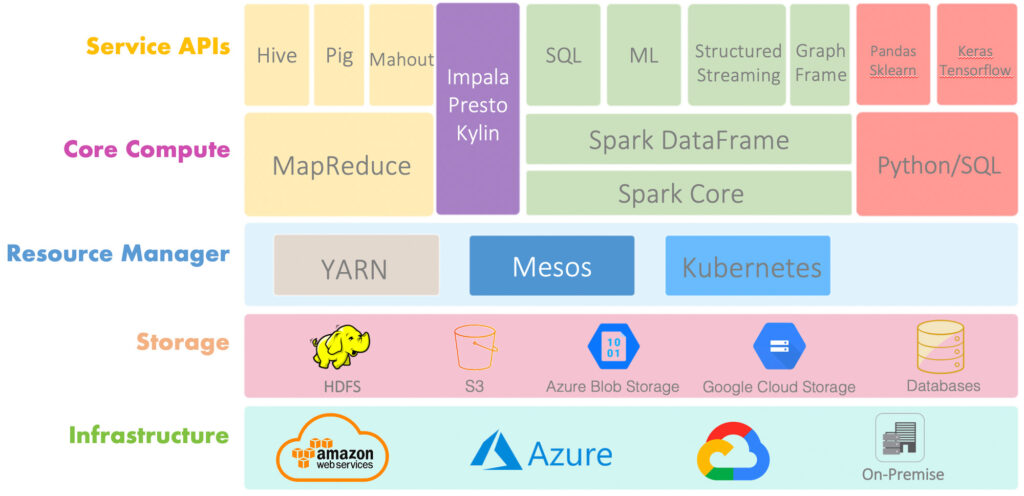
This part is hard if you haven’t worked as a data scientist. Showing experience of interacting with business stakeholders, taking in business requirements that you can translate into data requirements, and business presentations are very important. That’s why many FANNG companies also like to ask data and product sense related interview questions.
WeCloudData’s suggestions are:
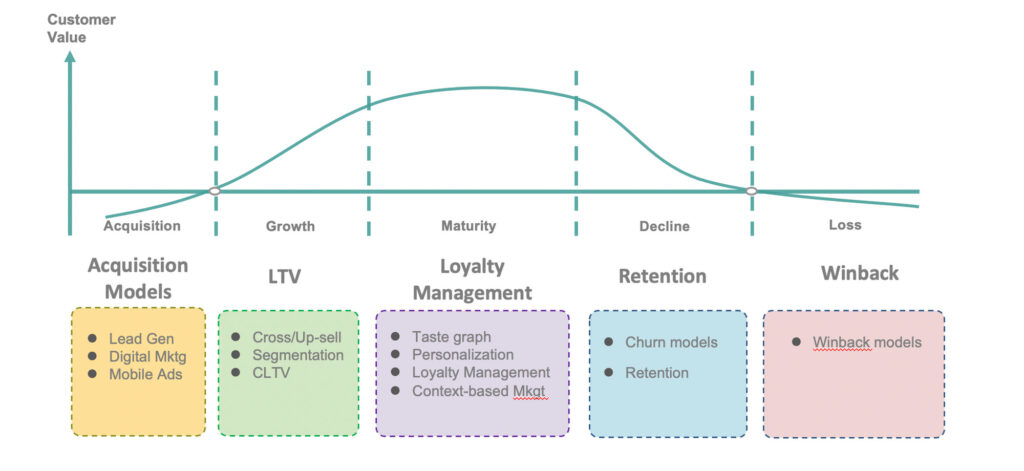
There are several different types of job applicants. Which one describes you best?
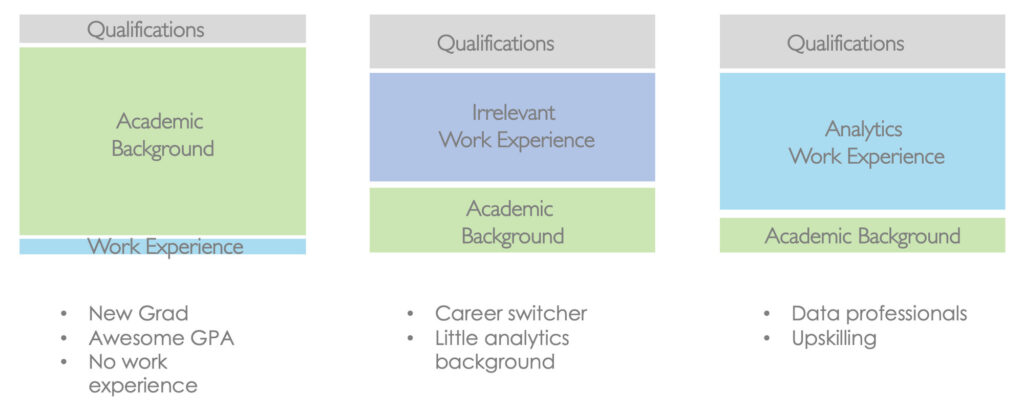
Resume for New Graduates
Most new graduates struggle with lack of experience. If you’ve graduated with a few interns/co-op experience then you’re blessed. Intern and co-op experience is a big plus in hiring managers’ eyes. If you don’t have intern/co-op experience, make sure you highlight your data science project experience, Github repositories, blog posts, as well as online course certifications. All of these efforts will add up and make you a strong candidate for junior roles.
We’d recommend a one-page resume that looks concise for new graduates. Adding keywords related to the data science skills in a different section will help too.
Resume for Career Switchers
If your past/current work experience is not related to data and analytics, make sure you highlight engineering, analytics, project management, and communication related skills in your resume. However, doing the above is not enough and won’t make you a solid resume to be noticed by hiring managers.
Hiring managers and recruiters typically only spend 10-20 seconds on each resume. So we suggest applicants put portfolio project related experience before work experience. It’s all about what information you prioritize for the reader. Otherwise, hiring manager may very likely skip your resume in 2 seconds.
You need something that catches hiring manager’s attention and nothing works better than interesting projects and the right key skills.
Links to your Github is also a must hive because career switchers will usually need to show extra proof that they have the right skills and experience.
We recommend a one-page resume that prioritizes your key skills and project experience for career switchers. Also highlight your other transferrable skills in past experience.
Resume for Data/Software Professionals
Having data analytics or software background will always give you an edge. That’s good news to data professionals and software engineers.
However, confirmation bias may exist in interviews.
For example, we’ve noticed that it’s not all that easy for a data analyst to switch to data science unless strong ML experience can be demonstrated. It’s partly because hiring mangers tend to think your data analytics experience is not that advanced and therefore you lack the necessary ML skills even though you have good data wrangling and visualization skills.
If you have strong data analytics experience, make sure you highlight that in your resume. But you probably shouldn’t make your resume feel like that you only specialize in data visualization. So, our suggestion is that you need to remove some experience and add more machine learning and big data related project experience.
We would suggest a 2-page resume for data professionals who want to switch to data science. List enough analytics skills and experience while adding several kaggle project or related ML projects will definitely make your resume favoured by hiring managers.
There are a few strategies that are commonly used for job application:
Usually if you have a direct connection that can refer you to the hiring manager it will be most effective. But if you’re a new grad or career switcher your network in the data social circle might still be very tiny so you don’t always have the luxury to have people who can refer you. Keep in mind that people who refer you usually also want to make sure that you’re a good candidate so they don’t damage the credibility.
Proactive networking is also commonly applied as an effective approach. For example, you can
Networking takes effort and patience. It’s not something that will pay off right away. Directly asking a manager to refer you or look at your resume usually don’t work very well for beginners so you’ll need to show some tenacities and persistence. Start networking ad early as possible. Don’t wait till you have started the job search.
Working with agencies are also a good approach because recruiters will save you lots of time and you get a better chance of talking to the hiring manager. The down side is that most recruiters want to work with experienced candidates because it’s directly correlated with their KPIs and commissions. Recruiters need to present strong candidates to the hiring team so they get paid.
So how do you know if recruiters will be interested in you? First, we suggest you to build a very solid LinkedIn profile that has as many details as possible. You can’t change your past experience but you can make your profile interesting to recruiters by adding certifications in cloud and data, data science skills, project descriptions, links to GitHub pages, blog post or LinkedIn posts. Second, wait and see if you get approached by recruiters. If not, be more proactive and reach out to recruiters. Keep a table that records who you contacted and calculate the response rate. Keep polishing your profiles and your cold calling pitch and see if the response rate is improving.
Among all the approaches, applying directly via indeed, LinkedIn or companies’ hiring portal is still the most common one. It’s usually considered as a laborious and boring approach. But it’s effective for junior data scientists to be for couple reasons:
As someone who’s trying to get the foot in the door this is still the best approach and we suggest you spend more effort and apply for as many jobs as possible. Try to apply for jobs with different versions of your resumes and test the responses so you know which version if more effective.
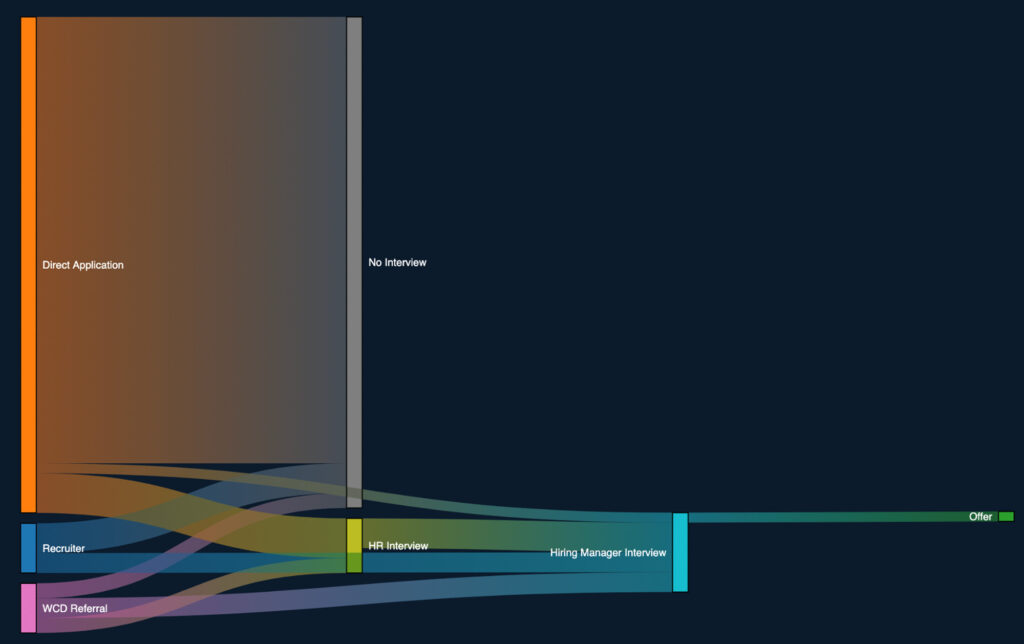
We often hear candidates complain that they don’t get interviews. But after a bit digging we notice that many of them only applied to limited amount of jobs like 20, 30 jobs. While we don’t believe one need to apply for jobs blindly, we do believe that only experience data professionals have the luxury to be more selective. Career switchers and new grads need to spend significant amount of effort on applying for more jobs because the market is very competitive and there are tens of thousands of candidates with similar skills and credentials competing for junior roles. So there’s no excuse for not trying your hardest.
WeCloudData’s general recommendations are as follows:
Passing data science interview is the last stage in your journey to become a Data Scientist and it’s certainly not an easy one. Data science interview process typically look like the following:

Job search is a lonely journey. You need to have the right expectations and learn to deal with stress. The following situations will be quite common:
It could be mentally exhausting and you feel defeated.
Many candidates would give up at this stage feeling they are not going to make it at all. Therefore, having an experienced mentor to guide you through the process can be very helpful. There are a few places where you may need help:
How to find a mentor?
Feedback
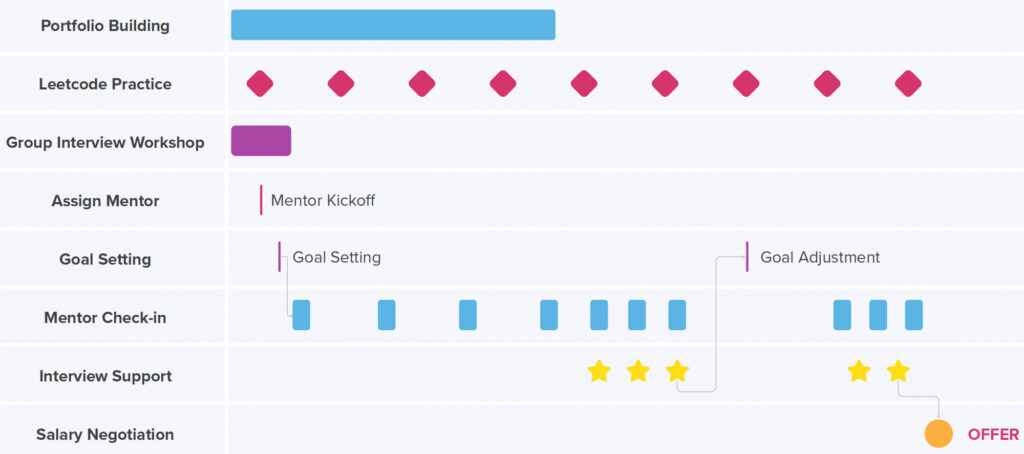
Our Career Guide provides all the resources you will need to help you get started in navigating data careers. We include free resources, guides, and tools to help you get started.
WeCloudData is the leading data science and AI academy. Our blended learning courses have helped thousands of learners and many enterprises make successful leaps in their data journeys.
"*" indicates required fields
Canada:
180 Bloor St W #1003
Toronto, ON, Canada M5S 2V6
US:
16192 Coastal Hwy
Lewes, DE 19958, USA